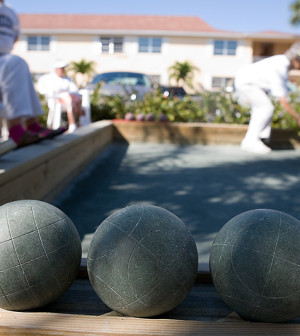Don't Miss
- Stigma, Shame Hit Many Gay Men Affected by Mpox Outbreak
- Calories, Not Meal Timing, Key to Weight Loss: Study
- Dietary Changes May Beat Meds in Treating IBS
- Screen Pregnant Women for Syphilis, Ob-Gyn Group Advises
- Even With Weight Gain, Quitting Smoking in Pregnancy Still Best for Health
- A-Fib Is Strong Precursor to Heart Failure
- One Neurological Factor Keeps Black, Hispanic Patients From Alzheimer’s Clinical Trials
- Managing Blood Sugar After Stroke Could Be Key to Outcomes
- Dozens of COVID Virus Mutations Arose in Man With Longest Known Case
- Blood Test Might Someday Diagnose Early MS
Health Tip: Help Prevent Food Poisoning
By LadyLively on October 1, 2013


Seniors, many of whom have compromised immune systems, are at higher risk of acquiring food poisoning.
The Academy of Nutrition and Dietetics suggests how to prevent the problem:
- Using warm, soapy water, wash hands before, during and after preparing meals. Wipe hands dry with a clean, dry towel.
- Make sure your refrigerator is set below 40 degrees Fahrenheit. Use a thermometer inside to check it.
- Promptly store perishables in the refrigerator after grocery shopping or meals.
- Promptly dispose of foods that have spoiled or have passed their expiration dates.
- Never allow raw meat or seafood to come into contact with ready-to-eat foods.
- Make sure all foods are cooked to the appropriate internal temperature and avoid foods that are more likely to cause food poisoning, including raw or rare meat, seafood or poultry and unpasteurized products.
Source: HealthDay
Copyright © 2024 HealthDay. All rights reserved.










